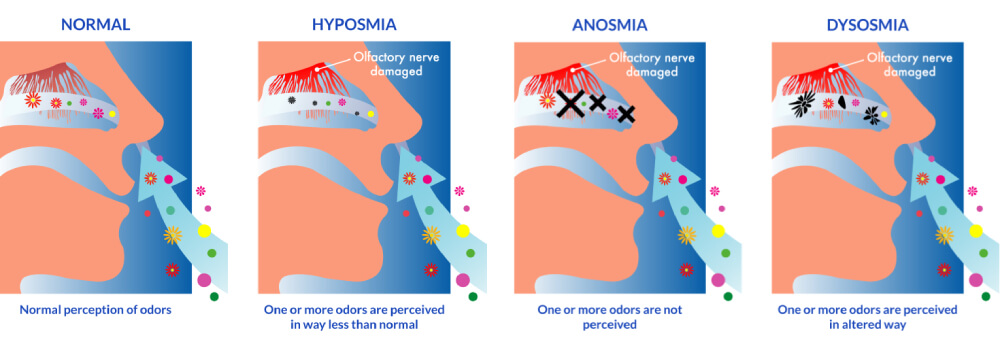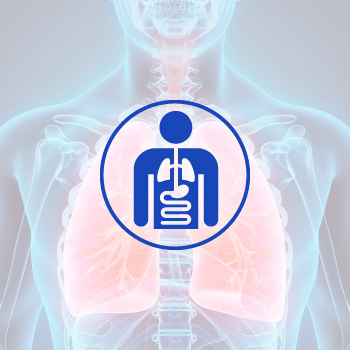Olfactory Dysfunction (smell disturbance)
Olfactory Dysfunction
Olfactory dysfunction is a condition characterized by the loss or impairment of the sense of smell, varying from partial to complete inability to detect odors.
Hyposmia
- Symptoms:
- Reduced ability to detect and identify odors.
- Difficulty in experiencing and distinguishing various scents.
- Impaired sense of taste due to the close connection between smell and taste.
Dysosmia
- Symptoms:
- Perception of odors as unpleasant or different from their actual nature.
- Misidentification of smells.
- Unusual or distorted olfactory sensations.
Anosmia
- Symptoms:
- Inability to detect any odors.
- Loss of the sense of taste, as taste is closely linked to smell.
- Potential safety concerns, as individuals may not detect harmful smells like gas or smoke.

- Causes:
- Complications & Risks:
- Diagnosis:
- Treatment:
Some of the common causes of hyposmia include:
- Nasal Congestion: Conditions leading to nasal congestion, such as allergies or infections, can result in reduced olfactory function.
- Viral Infections: Certain viral infections affecting the nasal passages can contribute to diminished smell.
- Medications: Some medications may have hyposmia as a side effect.
- Aging: Gradual changes in olfactory function can occur with age.
Causes of dysosmia include:
- Sinus Infections: Infections affecting the sinuses can cause distortions in the perception of smells.
- Head Injuries: Traumatic head injuries may lead to altered or distorted olfactory sensations.
- Neurological Disorders: Conditions affecting the nervous system, such as migraines or epilepsy, can contribute to dysosmia.
- Chemical Exposure: Contact with certain chemicals or toxins may result in distorted olfactory perceptions.
Causes of anosmia include:
- Respiratory infections: Common colds, sinus infections, or other respiratory illnesses can temporarily impair the sense of smell.
- Neurological disorders: Conditions such as Alzheimer’s disease, Parkinson’s disease, or multiple sclerosis can impact the olfactory nerves or relevant brain regions.
- Head injuries: Traumatic brain injuries or injuries to the nose and skull can lead to anosmia.
- Nasal and sinus issues: Nasal polyps, sinusitis, or other structural problems in the nasal passages can obstruct the sense of smell.
- Smoking: Tobacco smoke exposure is known to have detrimental effects on the sense of smell.
- Dental problems: Certain dental issues or infections can indirectly affect the olfactory system.
- Hormonal changes: Fluctuations in hormones, such as during pregnancy, can affect the sense of smell.






 أنقر هنا
أنقر هنا أنقر هنا
أنقر هنا












